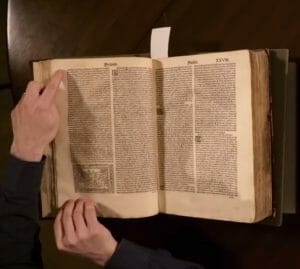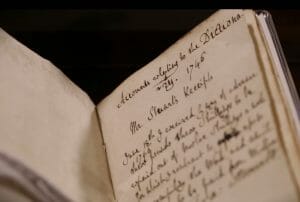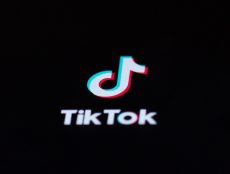
Imagine completing an entire degree online and doing so at no cost? In the age of online learning, this is now possible, but as MOOC offerings continue to proliferate, crafting a degree and selecting courses can be a challenge. In eLearningInside News’s “Top MOOCs” series, we offer tips on how to craft the very highest quality degrees across subject areas and levels. Our first installment, Top MOOCs: BA in English, offers suggestions on how to craft the very best bachelor’s degree in English using available MOOCs from seveval of the world’s most prestigious universities.
Establish a Program of Study
 Every bachelor’s degree in English has somewhat different guidelines but by and large, departments of English require candidates to acquire what is most often described as “coverage.” In other words, in order to complete a bachelor’s degree in English, candidates must acquire a demonstrated knowledge of English-language literature across different historical periods and national literary traditions. This means that anyone who thinks they can simply take courses on contemporary American literature or only read Shakespearean plays is out of luck. While such specializations are typically required as one’s studies progress (e.g., at the doctoral level), the bachelor’s degree aims to offer a broad-based knowledge of the field.
Every bachelor’s degree in English has somewhat different guidelines but by and large, departments of English require candidates to acquire what is most often described as “coverage.” In other words, in order to complete a bachelor’s degree in English, candidates must acquire a demonstrated knowledge of English-language literature across different historical periods and national literary traditions. This means that anyone who thinks they can simply take courses on contemporary American literature or only read Shakespearean plays is out of luck. While such specializations are typically required as one’s studies progress (e.g., at the doctoral level), the bachelor’s degree aims to offer a broad-based knowledge of the field.
At Yale University, which is home to one of the top-ranked English departments in the United States, undergraduates must typically complete 12 courses and a “senior requirement.” Core requirements include 3 foundational courses; at least one advanced course in medieval, renaissance, 18th or 19th century, and 20th to 21st century literature; and up to 2 creative writing courses. Additional guidelines advise that students take more senior- than junior-level courses. Finally, for the senior requirement, either 2 senior seminars or 1 senior seminar and a thesis is required. Using the Yale guidelines as a template, our proposed Top MOOC BA in English includes the following range of courses:
- English Poetry I (foundation level)
- English Poetry II (foundation level)
- American Literature (foundation level)
- British Literature (any level)
- World Anglophone Literature (any level)
- Medieval (advanced)
- Renaissance (advanced)
- Single Author Course 1 (e.g., Chaucer or Shakespeare)
- Literary Criticism (advanced)
- Creative Writing (any level)
- 18th Century/19th Century (advanced)
- 20th/21st Century (advanced)
- Senior Seminar 1 (any 4000-level course)
- Senior Seminar 2 (any 4000-level course)
Explore Recommended Courses
The best thing about completing a MOOC-based degree is that you can choose where and with whom you will study. eLearningInside News‘s staff writers and researchers consulted with English professors nationwide to develop the following list of recommended MOOCs. Notably, while offerings in English pale in comparison to the vast offerings now available in the applied sciences, it is still possible to build a robust program with coverage across all of English literature’s major fields of concentration. Our list includes courses taught by top literary scholars and book historians from Harvard, Yale, and Berkeley, as well as several highly recognized institutions outside the United States.
- English Fiction (foundation level): Start with English Literature & Composition Part 1: Stories (edX Berkeley).
- English Poetry (foundation level): Also complete English Literature & Composition Part 2: Poetry (edX Berkeley).
- American Literature (foundation level): Just a two top recommendations include Professor Cary Nelson’s Modern American Poetry class (Coursera) and a co-taught Dartmouth College course, The American Renaissance (edX).

- British Literature (any level): We recommend Yale Professor John Rogers’ course on Milton (Open Yale).
- World Literature (any level): Look no further than Masterpieces of World Literature with David Damrosch and Martin Puchner of Harvard University (edX).
- Medieval (advanced): Before the printing press, every book was also a unique work of art. In The Book: Making and Meaning in Medieval Manuscripts (edX Harvard), you’ll learn how to read medieval works as they were intended to be read. Professor John Cain’s Medieval Women Writers (MIT Open Courseware) is another recommended course in this category.
- Renaissance (advanced): Professor Stephen Greenblatt is among the most established literary critics in the world and one of the world’s leading experts on Renaissance literature. If you want to study the period with a top expert, enroll in Shylock’s Bond (edX Harvard). While focused on a single character from a single Shakespearean play, like his books, Greenblatt’s courses always offer a deep dive into literary and intellectual history.
- Single Author Course 1 (e.g., Chaucer or Shakespeare): We recommend Professor Jonathan Bates’s Shakespeare and his World (FutureLearn).
- Literary Criticism (advanced): Yale University’s English department has long been a leader in literary theory. On this basis, we recommend Professor Paul H. Fry’s Introduction to Theory of Literature through Open Yale.
- Creative Writing (any level): For creative writing, we recommended taking advantage of the University of East Anglia’s offering An Introduction to Screenwriting (FutureLearn) or the University of British Columbia’s How to Write a Novel (edX). Both the University of East Anglia in England and the University of British Columbia in Canada are known for their established creative writing programs, so be certain to explore their other available creative writing MOOCs to find one that meets your specific needs.
- 18th Century/19th Century (advanced): To fill this category, try Professor Noel Jackson’s Eighteenth Century Literature (MIT Open Courseware).
- 20th/21st Century (advanced): We recommend Professor Langdon Hammer’s Modern Poetry course, which is offered through Open Yale.
- Senior Seminar 1 (any 4000-level course): Harvard Professor and book historian Leah Price offers a fascinating glimpse into the world of 19th-century reading practices in Book Sleuthing (edX Harvard). This book will deepen your knowledge of 19th-century literature while helping you hone your research skills.
- Senior Seminar 2 (any 4000-level course): Professor Mary Fuller’s advanced special topics course on Milton’s “Paradise Lost” (MIT Open Courseware) is the ideal way to cap off your MOOC-based bachelor’s degree in English.
Start Your Program and Persevere
Not everyone who starts a MOOC or a MOOC-based degree finishes. Sticking to your program of study will require discipline and stamina but the rewards are well worth it. For inspiration, read our interview with David Venturi who crafted his own master’s degree in data science and then landed a job with an established MOOC developer.








No Comments